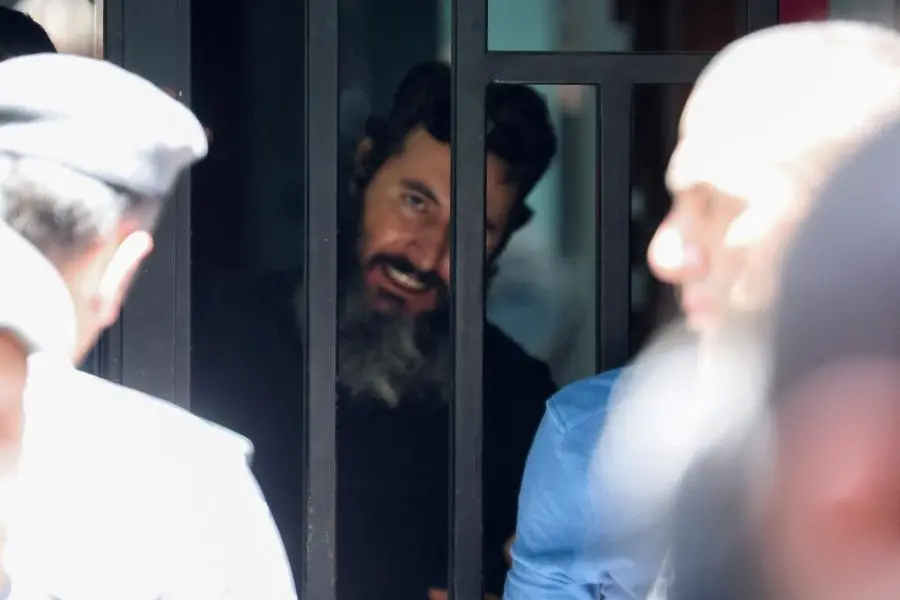PHOTO
BEIRUT - A Lebanese judge has ordered the release from detention without charge of man who last week took hostages at a Beirut bank in an attempt to access his savings frozen after the country's 2019 financial implosion, the man's brother and a legal group said.
Bassam al-Sheikh Hussein, 42, entered the Federal Bank of Lebanon branch in Beirut's Hamra district on Thursday and threatened employees with a firearm, agreeing to leave only after the bank pledged to give him $35,000 out of a total of his more than $200,000 deposit.
He said he needed the funds to pay a relative's hospital bills.
Hussein was detained Thursday following the release of all six hostages but released Tuesday afternoon without any charges being brought against him, his brother Atef told Reuters and legal watchdog group Legal Agenda reported.
"He is sitting with his family now and just relaxing a bit. There is no charge against him and he is a free man," Atef Hussein said.
The judge in the case did not immediately respond to a request for comment on the circumstances surrounding Hussein’s release.
According to Fouad Debs, the lawyer who represented Hussein last week, the bank pressed charges on Friday and dropped them by Tuesday.
Debs said it was still possible that the public prosecution was pressing lighter charges.
"We’re hoping this won’t be at expense of him getting the rest of the money in his account," Debs said.
Hassan Halawi, the head of the branch where the incident occured, said he had no comment as to whether Hussein should have faced charges but said "no one accepts what happened" at the bank.
During the hostage situation, a crowd gathered outside the bank to support Hussein, chanting "Down with the rule of the banks!"
He has since been praised by many in the country as a hero who stood up to informal capital controls that have not been formalised by law and give banks wide discretion to decide who is allowed to access their funds and how much they can receive.
Lebanese banks have limited withdrawals of hard currency for most depositors since a 2019 financial implosion that has left eight in 10 people poor.
Banks say they make exceptions for humanitarian cases including hospital care but depositors and their representatives have told Reuters those exemptions are rarely implemented.
(Reporting by Timour Azhari and Maya Gebeily; Editing by Raissa Kasolowsky)





















